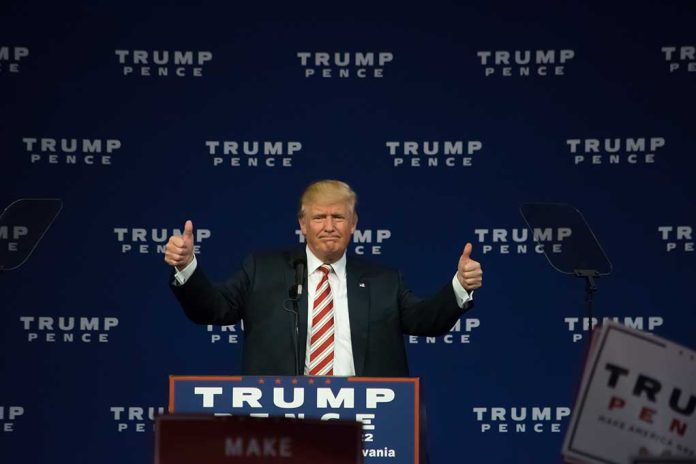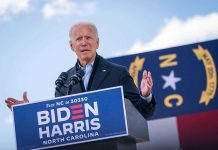
Donald Trump’s assertive immigration strategy promises to overhaul existing policies with immediate deportations and strengthened border security.
At a Glance
- Trump plans to initiate mass deportations starting January 20, 2025.
- These efforts include the largest U.S. deportation operation in history.
- Vice President-elect JD Vance pledges 1 million deportations annually.
- Policies may involve military and federal agencies, leveraging federal funds.
Trump’s Deportation Strategy Unveiled
President-elect Donald Trump pledges to commence mass deportations the day he takes office, January 20, 2025. Trump describes the operation as the largest in U.S. history, central to his campaign promises. Supporters view these measures as vital for safeguarding the nation’s security and prosperity, arguing that public opinion is aligned with such decisive action.
For many conservative Americans, these measures represent a much-needed commitment to secure the country’s borders and maintain a lawful immigration system, aligning with a vision of a safer, more orderly society. The focus on enforcement over leniency is seen as essential for upholding national sovereignty and supporting American workers.
Vice President-elect JD Vance affirms the administration’s intent to deport up to one million undocumented immigrants annually. This initiative aims to deliver on Trump’s electoral mandate by prioritizing efficient enforcement over broad-stroke actions. The outlined plan could involve various federal entities, the military, and diplomats, with compliance incentives for Republican-led states and conservative municipalities.
Supporters argue that such decisive steps underscore Trump’s commitment to fulfilling his promises and addressing long-standing concerns over unchecked immigration, which many conservatives believe undermines social cohesion and strains resources in American communities. This approach is viewed as a critical shift toward prioritizing citizens’ interests over those of non-citizens.
President-elect Donald Trump is promising a seismic shift in U.S. immigration policy, including deportations along the U.S.-Mexico border and expanding bans that had previously affected Muslim-majority countries. @camiloreports breaks down what you should know. pic.twitter.com/IjuSXB4gvC
— CBS News (@CBSNews) November 7, 2024
Economic and Social Repercussions
The proposed deportation strategy raises substantial economic concerns. A single act to deport 13.3 million migrants may cost an estimated $315 billion, while a one-million-a-year approach could run up $88 billion annually. Analysts caution that such measures might shrink the U.S. GDP by up to 6.8%, impacting families and communities across the nation.
For conservatives, the financial commitment to mass deportation is seen as an investment in national security and job protection for American workers. While the economic impact is significant, proponents argue that the long-term benefits of reduced illegal immigration will offset short-term costs, fostering a healthier economy with reduced dependence on taxpayer-funded services.
Though the strategy strives to reinforce national security, rights organizations warn of repercussions, including heightened vigilantism and potential hate crimes. These groups are mobilizing to legally contest the policies and encourage public advocacy to counteract adverse effects.
https://twitter.com/i/trending/1787187980748173598
Policy Challenges and Broader Impact
Trump’s immigration agenda could push federal agencies and states into legal and operational challenges given its scale and scope. Critics stress potential overreach, especially concerns about reinvoking the Alien Enemies Act of 1798. Meanwhile, entities like the ACLU and United We Dream prepare to support immigrant communities, focusing on legal battles and policy reform.
Conservative Americans see this strategy as part of a broader, America-first agenda that prioritizes national interests and economic independence. Many believe that a secure border, coupled with increased energy production, will not only protect American jobs but also reinforce the nation’s ability to stand strong against foreign influences, both economically and diplomatically.
The Trump administration’s strategy is dovetailing with broader initiatives to boost domestic energy production and assert diplomatic influence, marking significant shifts in U.S. policy directions. Whether these actions will foster the intended economic revitalization or trigger broader societal challenges remains to be closely observed.





